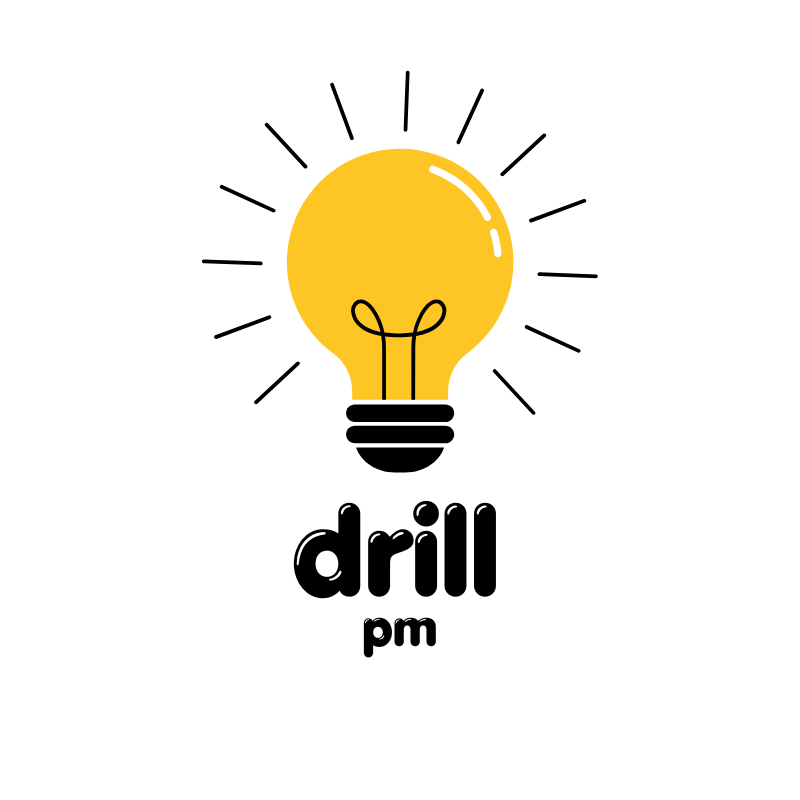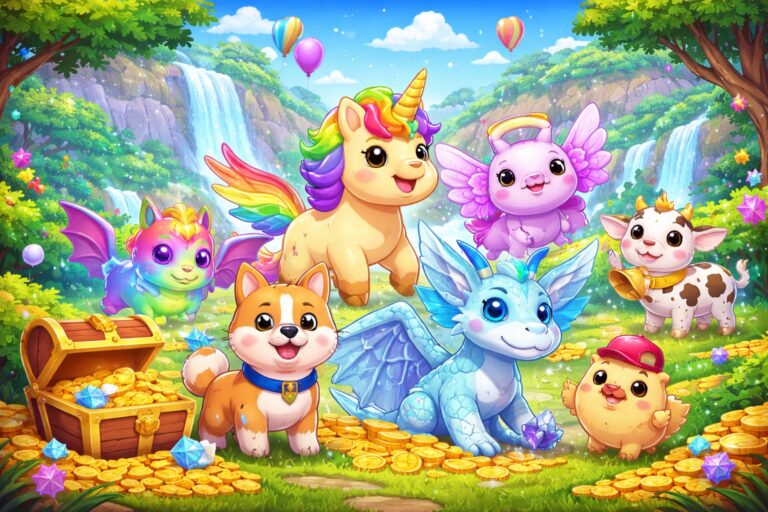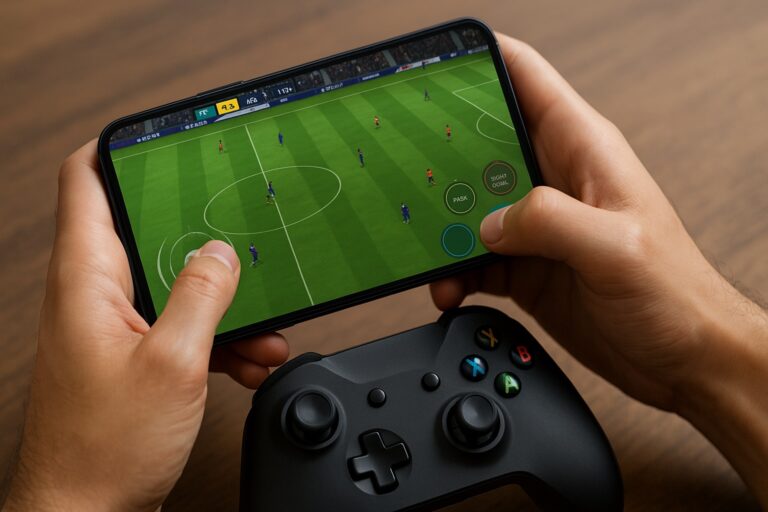Anúncios
Whether you’re a beginner discovering your first game or a seasoned player aiming for the top ranks, game mechanics are at the heart of your performance. Mastering them opens the door to consistent wins, better decision-making, and an overall more enjoyable experience.
Improving your mechanics isn’t about spending 10 hours a day in front of a screen. It’s about intentional practice, the right mindset, and smart strategies. With the right approach, anyone — from curious parents to rising streamers — can step up their gameplay.
Ready to unlock your potential and take your skills to the next level? This guide will walk you through practical, motivating steps to help you grow. Let’s get started!
Understand the Basics of Game Mechanics
Every online game — whether it’s Fortnite, League of Legends, Valorant, or Roblox — has its own mechanics. These include:
- Movement (running, dodging, jumping, crouching)
- Aiming (accuracy, tracking, flick shots)
- Timing (cooldowns, skill rotations, combos)
- Game sense (positioning, awareness, map knowledge)
Before anything else, learn how the game works. Explore tutorials, game wikis, or beginner YouTube videos. Understanding these foundational elements is the first step to building solid mechanics.
📌 Tip: If your game offers a training mode or tutorial, don’t skip it — even pros revisit the basics from time to time.
Choose the Right Equipment for Your Needs
Your gear matters more than you think — not for looks, but for comfort and consistency. Here’s what to focus on:
- Mouse and keyboard or controller: Use what feels natural and responsive.
- Monitor refresh rate: 60Hz is okay, but 120Hz+ offers smoother visuals.
- Internet connection: A wired connection (Ethernet) is better than Wi-Fi.
- Headphones: Improve focus and sound awareness (especially in FPS games).
You don’t need the most expensive setup, just equipment that works well and suits your needs. Especially for beginners and younger players, having a comfortable, lag-free setup makes a big difference.
Learn from the Best: Watch and Analyze
YouTube, Twitch, and TikTok are goldmines for gaming education. Don’t just watch for entertainment — watch with purpose. Observe:
- How players move and react in different situations
- The way they position themselves
- Their aim and timing
- How they communicate with teammates
Try watching pro players or streamers who explain what they’re doing. Pause the video and ask yourself: “Why did they move that way?” or “What decision would I have made there?”
📌 Bonus for parents: Watching content creators with your child can be a great way to understand their interests while guiding them toward positive role models.
Practice With Purpose (Not Just for Fun)
Playing for fun is awesome, but if you want to improve, you need intentional practice. That means:
- Focusing on one skill per session (e.g., aiming or movement)
- Reviewing your gameplay to spot mistakes
- Practicing in short, focused blocks (30–60 minutes with breaks)
The goal isn’t to grind endlessly — it’s to practice smart. Improvement comes from consistency, not burnout.
Use Training Modes and Custom Games
Many games now offer training features that let you:
- Practice aim on bots (e.g., Aim Labs, Kovaak’s for shooters)
- Learn mechanics without pressure (e.g., creative mode in Fortnite)
- Repeat drills in a low-stress environment
These tools are underrated — and incredibly powerful. Use them daily, even for just 15 minutes. You’ll see noticeable improvements in your reflexes and control.
Focus on One Game at a Time
Trying five games at once can be fun, but it’s not ideal for mastering mechanics. Every game has its own feel and skill set.
Pick one main game and dedicate most of your practice there. You’ll learn faster, build muscle memory, and gain deeper insights into the game’s mechanics and meta.
Once you’re solid, then explore other titles if you want.
Track Your Progress and Set Goals
Improvement is easier to see when it’s measured. Set realistic, specific goals like:
- “Increase aim accuracy from 30% to 50%”
- “Win 3 ranked matches in a week”
- “Climb from Bronze to Silver in 2 months”
Use apps like Tracker.gg, Overwolf, or in-game stat dashboards. Seeing your own progress builds confidence and momentum.
📌 Motivational tip: Celebrate small wins. Progress isn’t always linear — every step counts.
Join Communities and Ask Questions
Gaming is better together. Join Discord servers, Reddit threads, or Facebook groups dedicated to your game.
There, you can:
- Ask questions and get answers from experienced players
- Find teammates and mentors
- Share clips for feedback
- Stay updated on patches and strategies
Feeling stuck? Ask for advice. Most gamers love to help others improve — it builds the community.
Play With Better Players
You don’t get better by always winning — you grow by being challenged.
Playing with or against better players pushes you to:
- React faster
- Think smarter
- Break bad habits
It might be frustrating at first, but that pressure sharpens your skills. Just keep your mindset positive and focused on learning — not ego.
Balance Playtime with Breaks
This tip is crucial for everyone — especially young players. Long sessions can lead to:
- Fatigue
- Burnout
- Poor performance
- Health issues
Use the 20-20-20 rule: Every 20 minutes, look at something 20 feet away for 20 seconds. Take real breaks every hour. Hydrate. Stretch.
📌 Tip for parents: Help create a balanced gaming routine with set limits and rewards.
For Parents: Supporting Your Gamer Kid
Gaming can be a healthy, skill-building hobby. As a parent, you can support this by:
- Understanding the games your child plays
- Setting balanced screen time limits
- Encouraging breaks, social play, and variety
- Watching games with them and asking questions
This builds trust — and allows you to guide without judgment. You’ll also gain insight into a world they’re passionate about.
For Creators: Building Skill and Content Together
If you’re a streamer or content creator, improving your mechanics boosts:
- Viewer entertainment value
- Game insights and tutorials you can share
- Your credibility in the space
Create content that shows your progress — viewers love authentic growth. You can build a community that learns and levels up with you.
Conclusion
Improving your mechanics in online games is a journey — one that rewards patience, curiosity, and consistent practice. Whether you’re playing for fun, competition, or content, every step you take builds not just skill, but confidence.
No matter your level, remember: growth is possible for everyone. Focus on your progress, not perfection. You’re in control of your improvement — one session, one habit, one breakthrough at a time.
Ready to level up your gameplay? Start today — and enjoy the journey.
FAQ
1. How long does it take to see improvement in game mechanics?
It depends on your consistency. With focused practice 3–5 times a week, most players notice improvement within 2–4 weeks.
2. Can I improve at games even if I’m not naturally “good”?
Absolutely. Mechanics can be learned and refined by anyone — talent helps, but dedication matters more.
3. Are aim trainers worth it?
Yes! Tools like Aim Lab and Kovaak’s help you isolate and improve your aim, especially in FPS games.
4. How can I help my child get better at games without overplaying?
Set balanced play schedules, encourage breaks, and support them with positive feedback and curiosity about the games they love.
5. What’s the best way to avoid tilt while playing?
Take breaks when frustrated, avoid blaming teammates, and focus on learning from losses rather than just winning.



